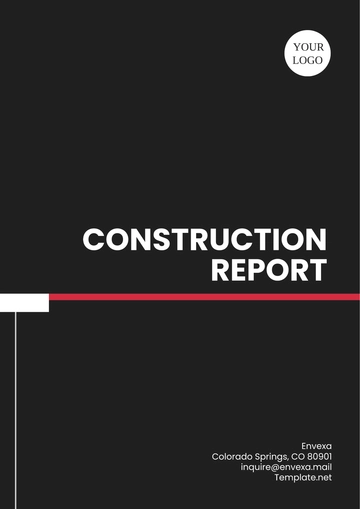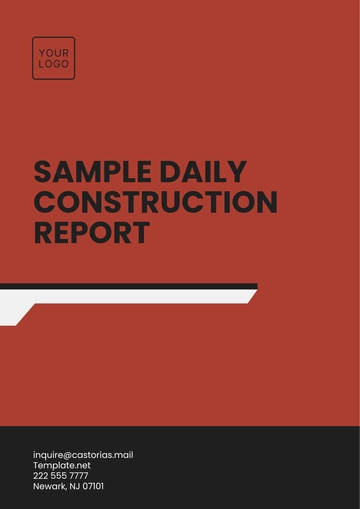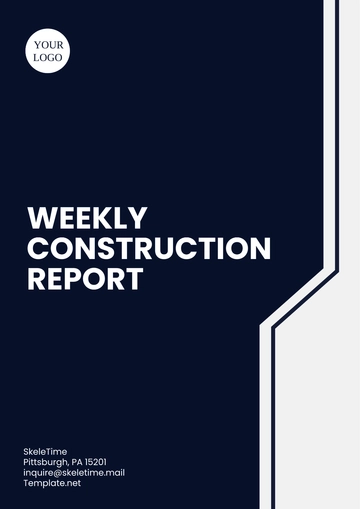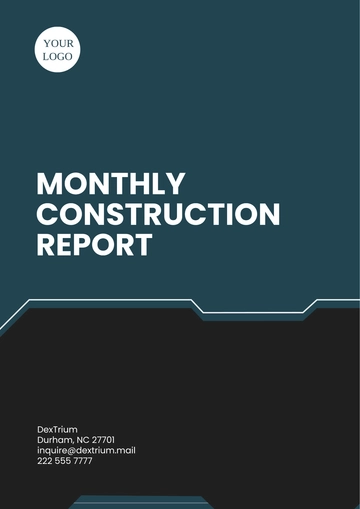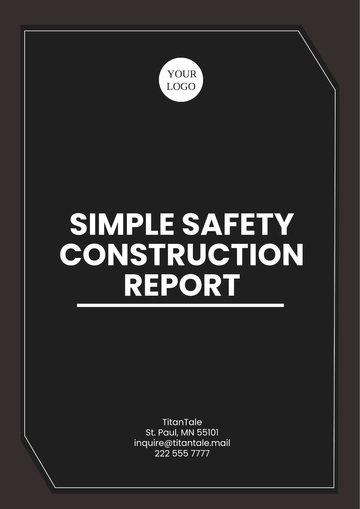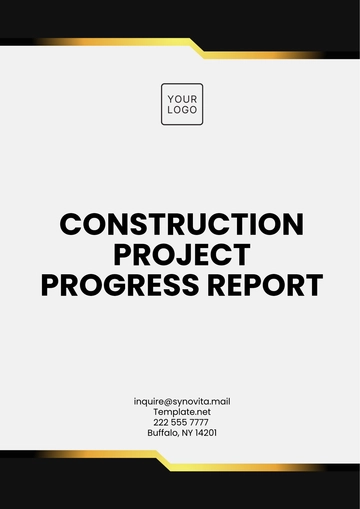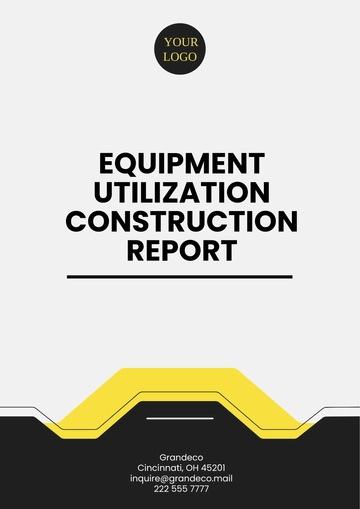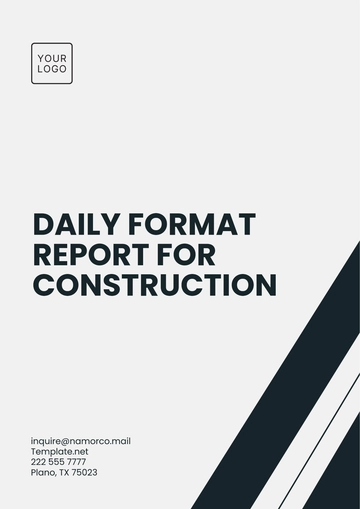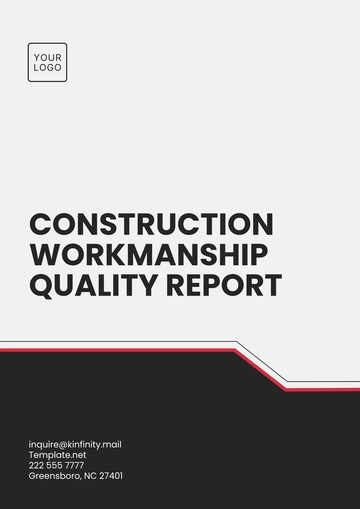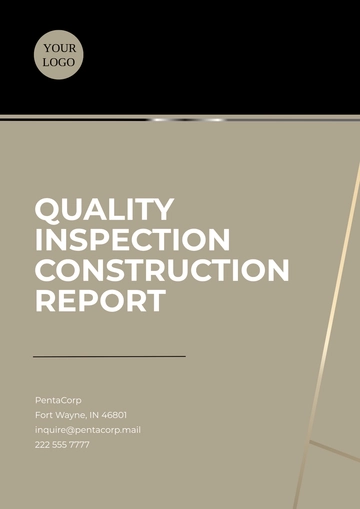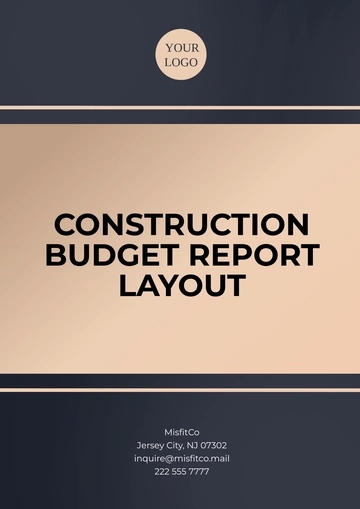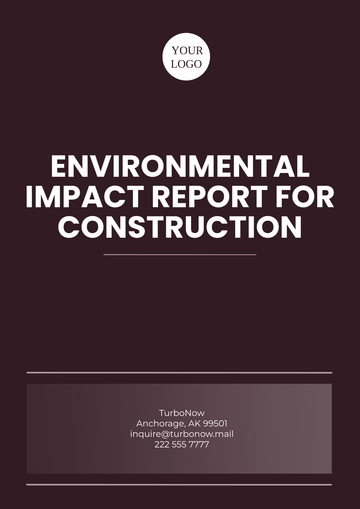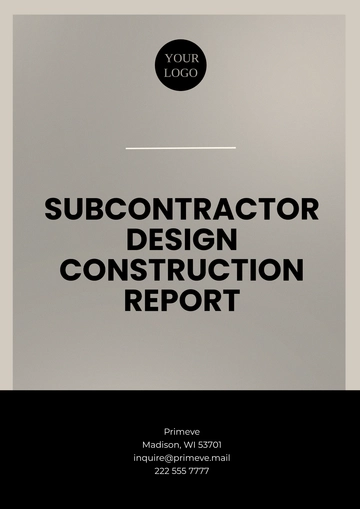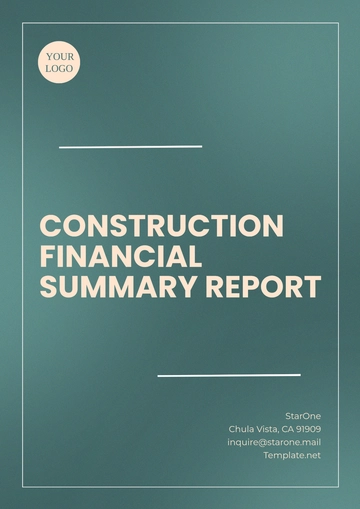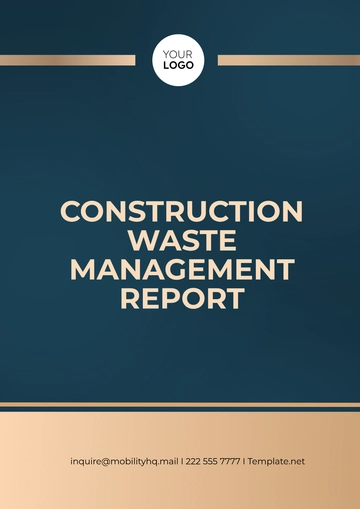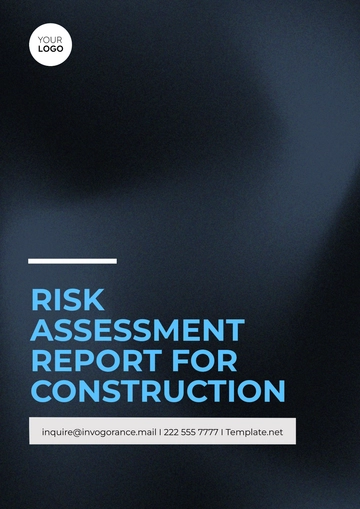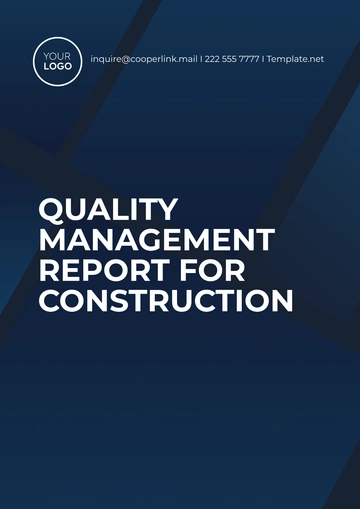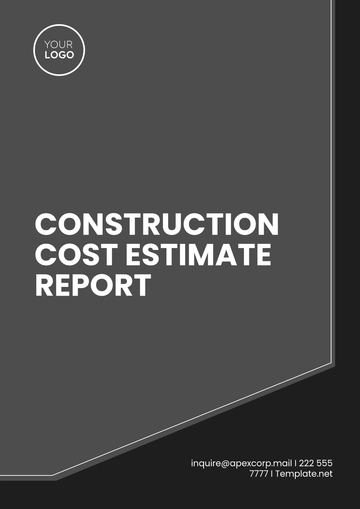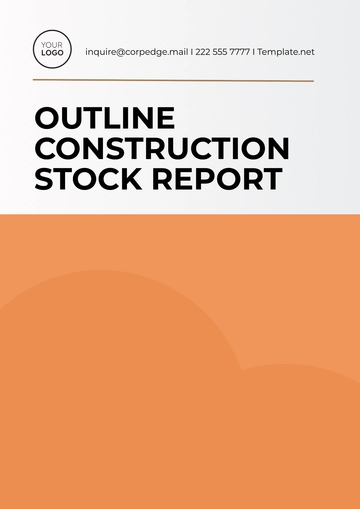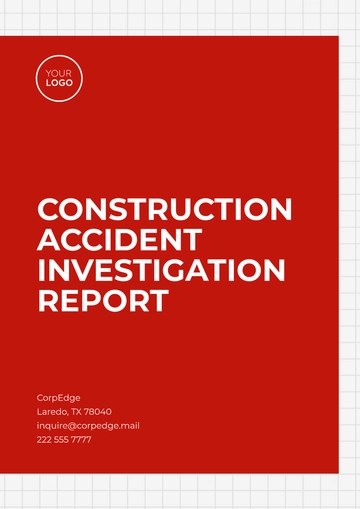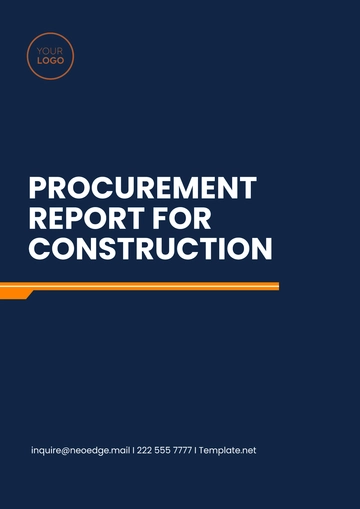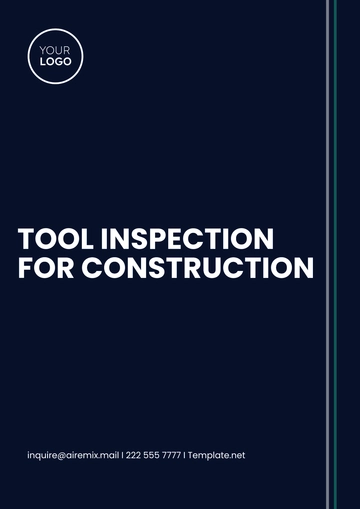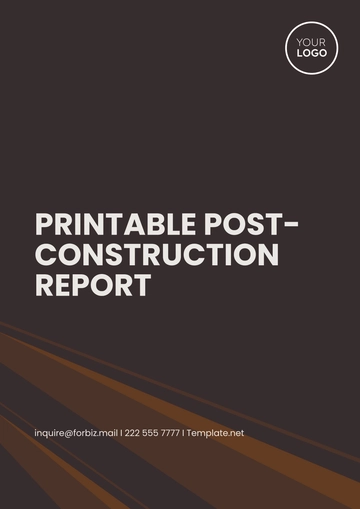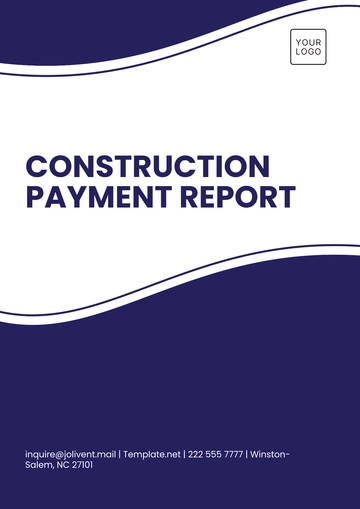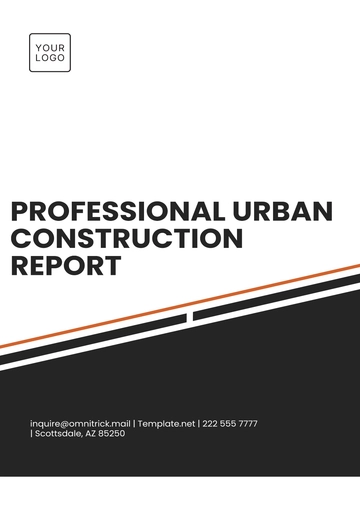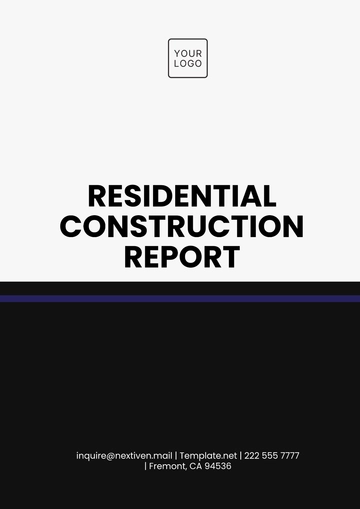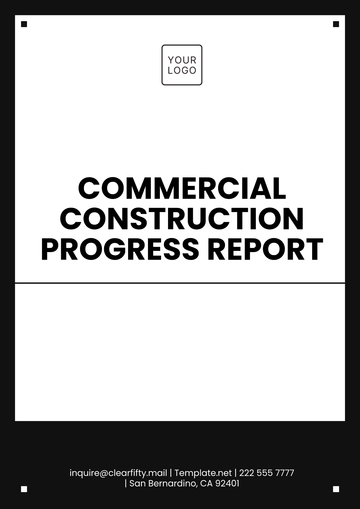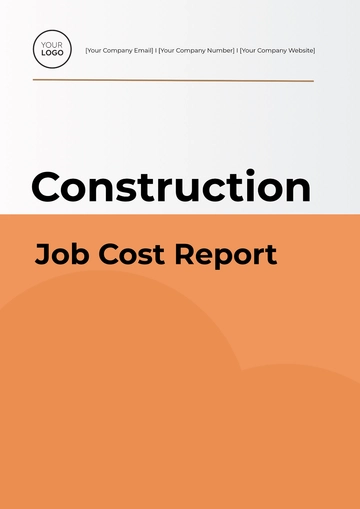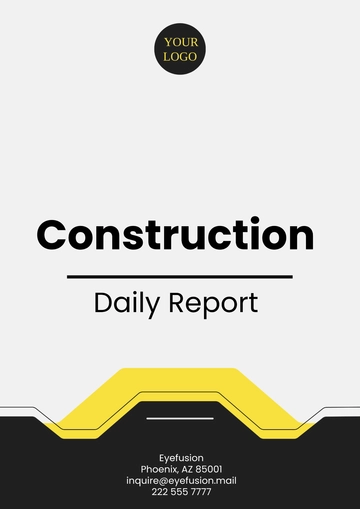Free Professional Urban Construction Report
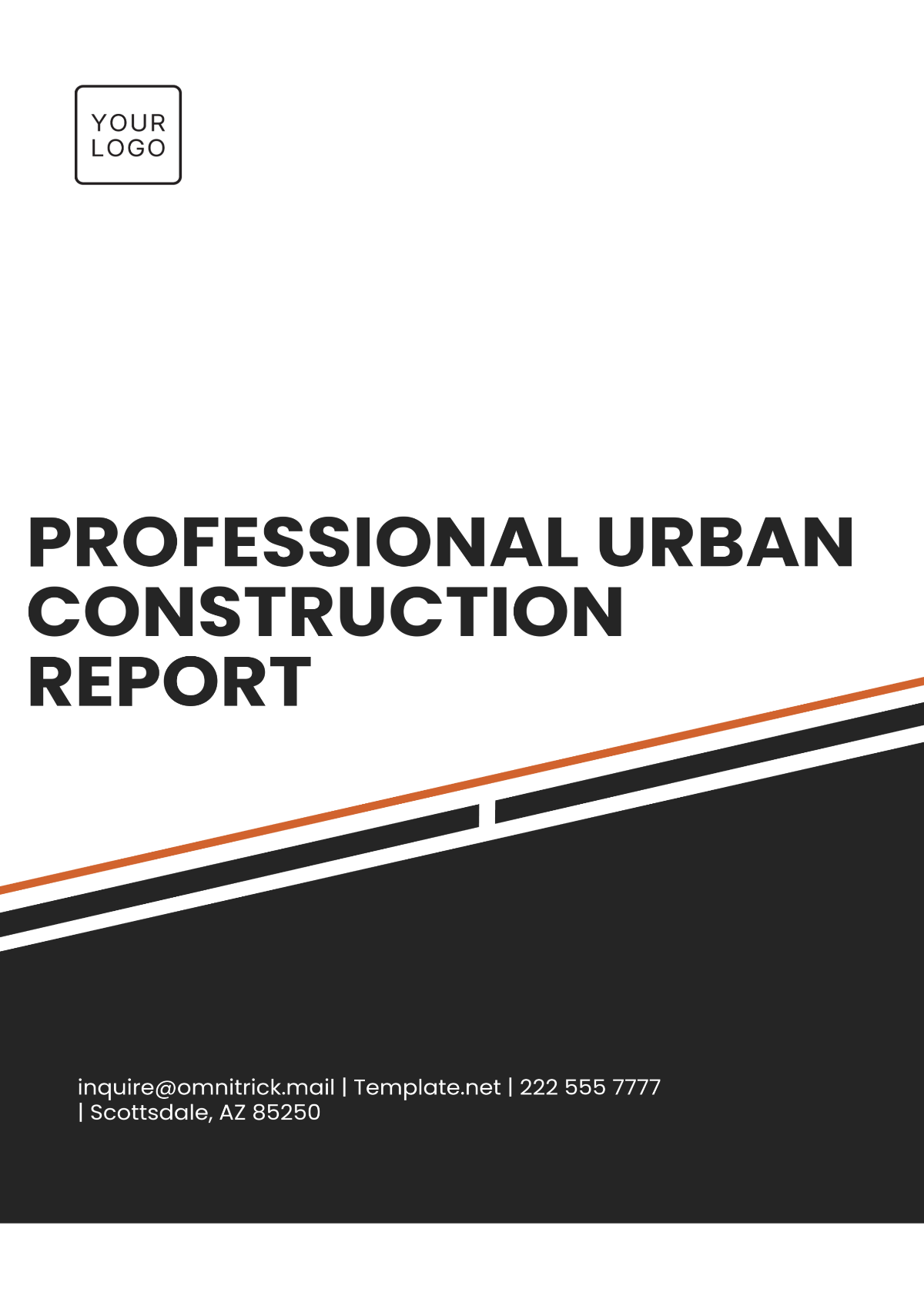
Prepared by: [Your Name]
I. Executive Summary
This report provides a comprehensive analysis of recent urban construction projects, covering various aspects such as scope, timeline, budget, and compliance with local regulations. The document aims to present an informed overview to support stakeholders' decision-making processes.
II. Introduction
A. Purpose of the Report
The purpose of this report is to deliver a professional analysis of urban construction projects, exploring their complexities and providing insights into their execution and impact.
B. Methodology
The data for this report was gathered through site visits, interviews with key stakeholders, a and review of project documents, to ensure a detailed and accurate presentation of the information.
III. Project Scope
The scope of urban construction projects under review spans residential, commercial, and infrastructural developments within the city limits.
Residential: High-rise complexes and affordable housing units.
Commercial: Retail outlets, office buildings, and multi-use centers.
Infrastructure: Road improvements, public transport enhancements, and utility upgrades.
IV. Project Timeline
A. Milestones
The projects are divided into phases, each with specific target completion dates:
Phase | Description | Completion Date |
|---|---|---|
Phase 1 | Initial planning and regulatory approvals | Q1 2050 |
Phase 2 | Groundbreaking and major construction | Q4 2050 |
Phase 3 | Final touches and inspections | Q3 2051 |
V. Budget Analysis
A. Estimated Costs
The initial budget allocation for the projects is as follows:
Residential Projects: $250 million
Commercial Projects: $180 million
Infrastructure Projects: $300 million
B. Financial Challenges
Significant financial challenges include inflation in material costs and disruptions in the supply chain which have impacted budget forecasts.
VI. Challenges and Risks
A. Environmental Challenges
Mitigating environmental impacts remains a primary challenge, with considerations for green space preservation and pollution control.
B. Social Challenges
Community resistance and displacement concerns require ongoing dialogue and adaptive strategies with residents.
VII. Regulatory Compliance
A. Local and State Regulations
The projects adhere to all local zoning laws, building codes, and state regulations. Regular assessments ensure compliance throughout each phase.
VIII. Impact Assessment
A. Environmental Impact
Efforts to minimize environmental impact include the use of sustainable materials and the implementation of waste reduction protocols.
B. Economic Impact
The projects are projected to create thousands of jobs and boost the local economy through increased business activities and improved infrastructure.
C. Social Impact
These construction projects aim to enhance urban living standards and accessibility, fostering a more vibrant community life.
IX. Conclusion
In conclusion, urban construction projects are poised to significantly benefit the city both economically and socially, despite the challenges that must be navigated. Ongoing collaboration between stakeholders is essential for successful project completion.
X. Recommendations
It is recommended that increased focus be placed on proactive risk management, community engagement, and continuous innovation in sustainable practices to ensure these projects serve as a model for future urban developments.
- 100% Customizable, free editor
- Access 1 Million+ Templates, photo’s & graphics
- Download or share as a template
- Click and replace photos, graphics, text, backgrounds
- Resize, crop, AI write & more
- Access advanced editor
The Professional Urban Construction Report Template from Template.net helps document construction progress in urban environments. Customizable and editable, this template tracks key details like project milestones, zoning compliance, and regulatory requirements. Editable in our AI Editor Tool, you can easily modify the sections to meet the specific needs of your urban construction project, ensuring clear communication with stakeholders.
You may also like
- Sales Report
- Daily Report
- Project Report
- Business Report
- Weekly Report
- Incident Report
- Annual Report
- Report Layout
- Report Design
- Progress Report
- Marketing Report
- Company Report
- Monthly Report
- Audit Report
- Status Report
- School Report
- Reports Hr
- Management Report
- Project Status Report
- Handover Report
- Health And Safety Report
- Restaurant Report
- Construction Report
- Research Report
- Evaluation Report
- Investigation Report
- Employee Report
- Advertising Report
- Weekly Status Report
- Project Management Report
- Finance Report
- Service Report
- Technical Report
- Meeting Report
- Quarterly Report
- Inspection Report
- Medical Report
- Test Report
- Summary Report
- Inventory Report
- Valuation Report
- Operations Report
- Payroll Report
- Training Report
- Job Report
- Case Report
- Performance Report
- Board Report
- Internal Audit Report
- Student Report
- Monthly Management Report
- Small Business Report
- Accident Report
- Call Center Report
- Activity Report
- IT and Software Report
- Internship Report
- Visit Report
- Product Report
- Book Report
- Property Report
- Recruitment Report
- University Report
- Event Report
- SEO Report
- Conference Report
- Narrative Report
- Nursing Home Report
- Preschool Report
- Call Report
- Customer Report
- Employee Incident Report
- Accomplishment Report
- Social Media Report
- Work From Home Report
- Security Report
- Damage Report
- Quality Report
- Internal Report
- Nurse Report
- Real Estate Report
- Hotel Report
- Equipment Report
- Credit Report
- Field Report
- Non Profit Report
- Maintenance Report
- News Report
- Survey Report
- Executive Report
- Law Firm Report
- Advertising Agency Report
- Interior Design Report
- Travel Agency Report
- Stock Report
- Salon Report
- Bug Report
- Workplace Report
- Action Report
- Investor Report
- Cleaning Services Report
- Consulting Report
- Freelancer Report
- Site Visit Report
- Trip Report
- Classroom Observation Report
- Vehicle Report
- Final Report
- Software Report
